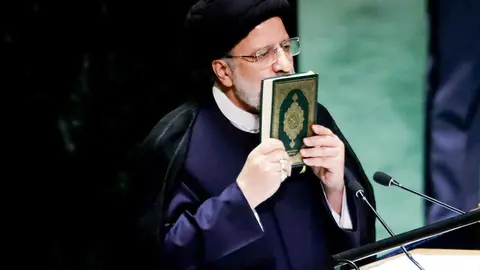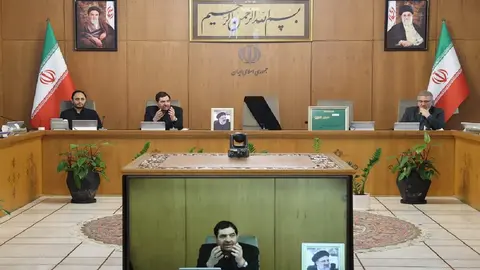Making it look like an accident

However, if such accidents involve figures and personalities capable of determining the course of events that affect not only a large region but also almost the entire planet, it seems logical to be suspicious and doubtful that fate was indeed written.
For those of us who have been brought up in the European Judeo-Christian culture - myself for instance - the official announcement of President Raisi's death, describing him as a "martyr", comes as a shock. It goes without saying that the deceased has been reunited with Allah, the name by which Muslims refer to God. However, the label of martyr for someone who was not in vain nicknamed "the butcher of Tehran" is highly suspect.
The nickname was neither humorous nor gratuitous. Raisi was one of the four judges overseeing the 1988 mass trial of thousands of political opponents, most of whom were sentenced to death. The fatwa had been pronounced by the founder of the Islamic Republic of Iran, Ayatollah Khomeini, but like all bloody and capital provisions, it requires very diligent executioners, and Raisi did so with such enthusiasm that he rose through the regime's hierarchy. The number of political opponents who were executed by hanging has never been known with any certainty, given the secrecy of those trials held in total darkness, although organisations such as Amnesty International put the number at around 5,000.
Raisi never abhorred the killing of political opponents, but rather always argued that their elimination was in the interests of national security. In short, his merits earned him the appointment as the regime's attorney general.
The reviled former US president Donald Trump imposed personal sanctions on him in 2019, on the grounds that he had ordered the execution of people for crimes committed when they were minors, as well as for having directed the bloody repression against the so-called Green Movement, which brought together those who denounced the fraud of the 2009 elections in which Mahmoud Ahmadinejad became president.
In 2019, Raisi became vice-chairman of the Assembly of Experts, the body in charge of electing the supreme leader. He joined this position to that of custodian of the Astan Quds Razavi Foundation, the largest in the Islamic world, accumulating so much power that he became the best-placed contender to succeed Ali Khamenei, who, by the way, has just turned 85, an age that has spurred ambitions and appetites to succeed him. His victory and ascension to the presidency in 2021 put him in the best position to succeed Khamenei.
However, in addition to Raisi, in recent months the figure of Mojtaba had emerged, a lower-ranking cleric who possessed a unique quality: he was the son of the supreme leader and, digitally of course, was elevated to the highest clerical hierarchy, which made him this year a contender with a good chance of succeeding his august father.
For the time being, constitutional procedures will be followed. Thus, Vice-President Mohammad Mojber will occupy Raisi's post for fifty days, may Allah rest his soul, before the final choice of a successor is made. Mojber is a faithful follower of the hard and implacable line of the current supreme leader, as was Raisi.
The main issue is in any case to determine the direction the regime will take. Beyond the personal power struggles, no substantial changes are likely to take place. As demonstrated by the violent crackdown on demonstrations over the death of Kurdish woman Mahsa Amini at the Morality Police station, arrested for allegedly not wearing her headscarf properly, the regime knows that its survival depends on an increasingly aggressive escalation of repression. This is demonstrated by the 226 people executed so far this year 2024, at least 10 of whom are women. These figures have so far not sparked any protest movements among the elites of Western countries, who are perhaps waiting for better occasions to demonstrate.
Also noteworthy is Israel's reaction of denying any involvement in the unfortunate accident. There is no reason to doubt the sincerity of such an assertion. Providence, in both the Judeo-Christian and Islamic worlds, operates at its own risk, outside the realm of men, this term being understood as a generic term that obviously encompasses men, women and even non-binary beings.



